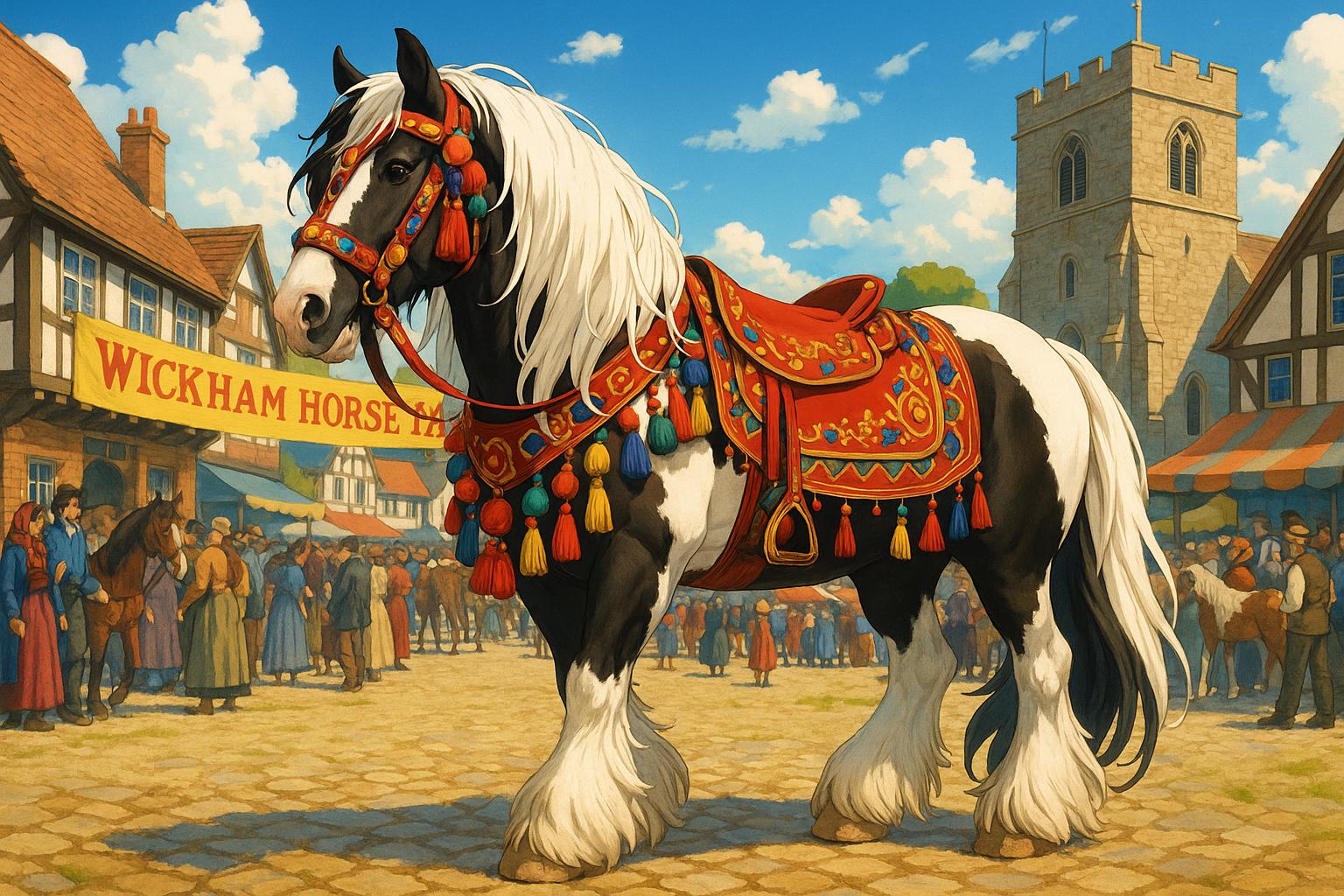Dozens of travellers have converged on the picturesque village of Wickham in Hampshire as the annual Wickham Horse Fair approaches, a historic event now over 750 years old. Caravans have begun to populate a field near the village, particularly Greta Park in Hedge End, approximately six miles from the heart of the event. As preparations ramp up for this iconic fair, reports note that significant challenges may lie ahead for the traditional gathering.
Historically, the fair traces its roots back to 1269 when Roger De Syres received a royal charter from King Henry III, allowing for a weekly market in Wickham's town square. This event has since transformed into a vibrant fair where the travelling community can trade horses, reconnect with family, and celebrate their culture. However, while the horse fair has long been a cornerstone for the Romany and Traveller communities, recent concerns have emerged about declining participation. Vendors and traders have expressed worries over slow trade and diminishing turnout, as the landscape of public events continues to evolve, marked by more stringent regulations and changing consumer habits.
Spectators have commented on the decline in traditional amusements that once flourished at the fair, which some attribute to today's economic pressures. The 2019 event, which commemorated the fair's 750th anniversary, lacked the crowd-drawing entertainment of previous years, signalling a shift that has prompted calls for revitalisation. Despite these issues, there remains a spirit of optimism among some attendees, who cherish the occasion for socialising and upholding community bonds.
In anticipation of the upcoming fair on May 20, roads, shops, and pubs within the vicinity will close to prepare for the influx of visitors. Fun fairs, food stalls, and other vendors are set to line the streets, creating a bustling atmosphere. In past years, festivities included horse racing and public parades, though there have been incidents that marred the excitement, such as reports of animals in distress. The presence of organisations like the RSPCA underscores the seriousness of animal welfare concerns, providing necessary oversight during the event.
A crucial aspect of the Wickham Horse Fair remains its historical context; the 13th-century Wickham Square, with its original burgage plots, is one of the largest surviving market squares in England. It has served as a focal point for community gatherings for centuries. One longstanding tradition includes the 'King's Head' pub, named after Henry III, where it is said a horse traditionally takes the first drink at the event. This rich history continues to be a vital part of the fair’s identity, contributing to its cultural significance for both locals and visitors alike.
As this year’s fair approaches, local authorities, including Hampshire police, have indicated that additional officers will be deployed to manage the event effectively. These measures are designed to ensure a safe experience for all attendees and to address any issues that arise routinely within these large congregations.
While doubts persist regarding the fair's future longevity amidst a backdrop of changing economic and regulatory landscapes, the Wickham Horse Fair remains a cherished tradition. This gathering not only facilitates horse trading but also fosters a sense of community and cultural celebration that defines the travelling communities across the UK. Whether the fair can rejuvenate its prominence in the years to come remains to be seen, but its historical roots are firmly entrenched, making it an event of great significance.
Reference Map
- Paragraphs 1 and 2: (1), (4), (6)
- Paragraph 3: (2), (5)
- Paragraph 4: (1), (7)
- Paragraph 5: (3), (7)
- Paragraph 6: (6), (5)
- Paragraph 7: (7)
Source: Noah Wire Services
